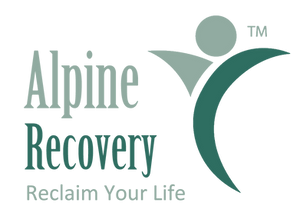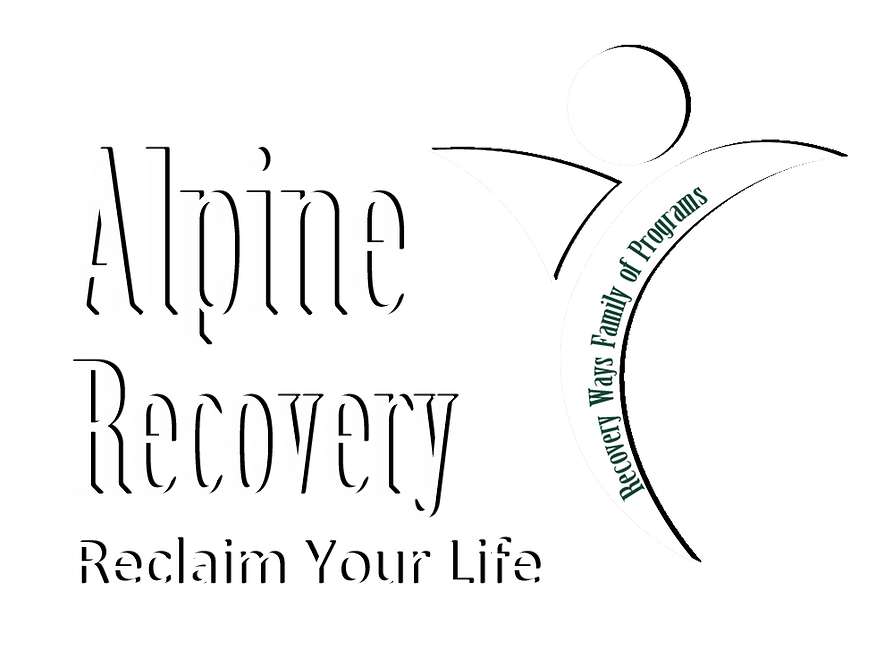Alcohol Treatment Everett Wa
An Overview of Alcohol Treatment in Everett, WA
In the bustling community of Everett, Washington, alcohol treatment services are crucial for those seeking to overcome addiction. Alpine Recovery, among other local institutions, plays a pivotal role in providing comprehensive care tailored to the individual’s needs. Their multifaceted approach ensures that each person’s journey to sobriety is unique and supported by professional guidance.
The demand for effective alcohol treatment in Everett, WA, highlights the importance of accessible resources for residents. Local treatment centers feature a range of programs and therapies, offering both inpatient and outpatient options to best meet the needs of their clients. With an emphasis on holistic healing, these facilities consider the mental, emotional, and physical aspects of addiction.
Personalized Care at Alpine Recovery
Alpine Recovery prides itself on delivering personalized treatment plans that address the complexities of each individual’s struggle with alcohol dependence. By focusing on evidence-based practices and holistic therapies, they create a robust support system for clients. Their team of licensed therapists and counselors works collaboratively with clients to develop and execute effective treatment strategies.
Each client’s journey is meticulously crafted, starting with an initial assessment to determine the most suitable course of action. The facility’s serene environment further complements the personalized care approach, facilitating a sense of calm and openness that is conducive to recovery.
This personalized care extends beyond the initial stages of detoxification. Clients are engaged in continuous dialogue with their care team, ensuring that their evolving needs are met throughout their recovery journey. This adaptive approach is pivotal in maintaining motivation and fostering long-term commitment to sobriety.
Holistic Approach to Recovery
At Alpine Recovery, healing is an all-encompassing process. The institution places significant emphasis on holistic wellness, integrating various practices that address physical, emotional, and spiritual facets of recovery. Mindfulness exercises, nutritional education, and structured fitness regimes are key components of their holistic treatment model.
By nurturing both body and mind, Alpine Recovery helps clients achieve a balanced lifestyle that supports sustained recovery. These holistic treatments are designed to complement traditional therapy, providing a comprehensive foundation for a sober lifestyle.
Such practices not only aid in detoxification but also empower clients to establish healthier habits. Incorporating these elements into daily routines can significantly enhance the overall well-being and resilience of individuals committed to alcohol treatment in Everett, WA.
Importance of Community Support
One of the cornerstones of Alpine Recovery’s philosophy is the vital role of community and peer support in the recovery process. By fostering connections among individuals who share similar struggles, a strong network of encouragement and understanding is created.
This sense of community serves as a powerful motivator, helping clients to feel supported and less isolated in their journey. Group therapy sessions and peer-led discussions play an integral part in this dynamic, allowing individuals to share experiences and gain insights from others.
Additionally, community support extends beyond the confines of the facility. By building relationships with other local organizations, Alpine Recovery ensures that clients have access to a broader support system even after they complete their formal treatment programs.
Comprehensive Inpatient and Outpatient Programs
Alpine Recovery offers a variety of programs to accommodate the diverse needs of their clients, including both inpatient and outpatient options. These programs are crafted to provide a structured environment while allowing flexibility for those who may have work or family commitments.
The inpatient program is designed for those who require a more immersive experience, complete with 24-hour support and a structured daily schedule. This setting is particularly beneficial for individuals in the initial stages of detoxification and stabilization.
The outpatient program, on the other hand, offers similar therapeutic benefits but allows clients to maintain their daily routines. This approach is ideal for those who have a supportive home environment and are progressing well in their recovery journey.
Both programs are characterized by their adaptability and dedication to meeting the specific requirements of each client. Through continuous monitoring and reassessment, Alpine Recovery ensures that every participant receives the optimal level of care.
Detoxification and Medical Support
Key Steps in Detoxification Process
Detoxification represents a critical first step in the journey to recovery at Alpine Recovery. Under the supervision of a dedicated team of medical professionals, clients undergo a carefully monitored detox process to ensure safety and comfort during withdrawal.
Ongoing Medical Monitoring
Throughout this phase, continuous medical monitoring is provided to address any complications that may arise. This ensures that clients can transition smoothly into the next stages of their treatment with a stable foundation.
Alpine Recovery’s experienced medical staff is equipped to manage the physical symptoms of withdrawal, offering medications and other interventions as necessary. This comprehensive approach underscores the facility’s commitment to ensuring the safety and well-being of every client.
Family Counseling and Support
The involvement of family is a crucial element in the recovery process at Alpine Recovery. Recognizing this, the facility offers family counseling services to help rebuild trust and communication between clients and their loved ones.
These sessions provide a safe space for family members to express their concerns and seek guidance on how to best support their loved ones. By fostering open dialogue, rehabilitation programs can significantly enhance the overall recovery experience.
Family support not only aids the individual struggling with addiction but also helps alleviate the emotional burden experienced by family members, promoting healing for everyone involved.
Aftercare Planning for Sustained Recovery
Once formal treatment concludes, Alpine Recovery’s commitment to its clients continues through detailed aftercare planning. This phase involves developing a comprehensive plan that outlines ongoing support mechanisms, such as therapy sessions, support groups, and other resources.
Aftercare planning is crucial for ensuring sustained recovery and preventing relapse. By equipping clients with the necessary tools and strategies, Alpine Recovery helps them navigate the challenges of maintaining sobriety outside the treatment environment.
The personalized nature of these plans ensures that they are realistic and aligned with individual goals, further reinforcing the facility’s dedication to long-term success for each client.
What is a typical course of alcohol treatment Everett WA?
A typical course of treatment for alcohol dependence often begins with detoxification, which is managed under medical supervision to ensure safety and comfort. At Alpine Recovery, we recognize that each person’s journey is unique, so we assess the individual’s specific needs before developing a personalized treatment plan. Once detoxification is complete, the focus shifts to intensive therapy. This includes individual and group therapy sessions, which help clients explore the underlying causes of their addiction and develop coping strategies. Clients also engage in holistic practices such as mindfulness and exercise to support overall well-being. An individualized aftercare plan, which includes ongoing therapy and support groups, is crafted to ensure sustained recovery. This comprehensive approach not only addresses the addiction but also empowers individuals to rebuild their lives. For readers who are considering treatment options, how do you feel about incorporating holistic practices into your recovery plan?
How many people are in rehab for alcohol?
Understanding the scope of alcohol dependence treatment, particularly in a community like Everett, is crucial. Thousands of individuals seek rehab for alcohol dependence across the country, and at any given time, a significant number are involved in treatment programs. At Alpine Recovery, we maintain a supportive and personalized approach, which ensures each client receives the attention and care they deserve. It’s not merely about numbers but about the quality of the journey toward recovery. If you’re considering seeking help, remember that each person’s recovery is their own, and being part of a community like ours can make all the difference. Does the idea of a community-focused approach to recovery appeal to you, and why?
How does personalized care at Alpine Recovery differ from other programs?
Personalized care at Alpine Recovery is central to our philosophy. Unlike standard treatment programs that adopt a one-size-fits-all methodology, our approach begins with a thorough assessment of each client’s unique needs, preferences, and circumstances. This allows us to develop a bespoke treatment plan that evolves as the client progresses. We integrate evidence-based practices with holistic approaches, such as mindfulness exercises and nutritional education, to foster a balanced lifestyle. This strategy is designed to address not just the physical aspect of addiction but also emotional and spiritual facets. By cultivating a serene environment and focusing on the whole person, we create an atmosphere conducive to lasting recovery. Have you thought about what specific elements you would want in your personalized recovery journey?
What role does community support play in recovery at Alpine Recovery?
Community support is a cornerstone of the recovery process at Alpine Recovery. We believe that connecting with others who share similar experiences fosters a sense of belonging and empowerment. Our programs include group therapy sessions and peer-led discussions that encourage clients to share insights and support each other. This communal aspect helps alleviate feelings of isolation and encourages mutual support. Additionally, by partnering with local organizations, we extend this sense of community beyond our facility, ensuring clients continue to receive support even after formal treatment ends. If you’re considering seeking help, how important is community and peer support in your recovery journey, and have your experiences shaped this view?
Why is aftercare planning essential for sustained recovery?
Aftercare planning is crucial because it provides a roadmap for maintaining sobriety and preventing relapse. At Alpine Recovery, we craft detailed aftercare plans that are tailored to each individual’s circumstances and goals. These plans typically include ongoing therapy sessions, participation in support groups, and access to local resources. By equipping clients with tools and strategies for navigating real-world challenges, we help them build resilience and fortify their recovery. Effective aftercare bridges the gap between structured treatment and independent living, making it a vital component of the recovery process. Have you considered what support structures would be necessary for your sustained recovery outside of a treatment program?
Resources
- Substance Abuse and Mental Health Services Administration (SAMHSA) – SAMHSA is a government agency that leads public health efforts to advance the behavioral health of the nation.
- National Institutes of Health (NIH) – NIH is the primary agency of the United States government responsible for biomedical and public health research.
- National Institute on Drug Abuse (NIDA) – NIDA is a government organization that supports research on drug abuse and addiction.
- Centers for Disease Control and Prevention (CDC) – The CDC is a national public health institute that works to protect public health and safety through the control and prevention of disease, injury, and disability.
- American Psychiatric Association – The APA is a professional organization representing psychiatrists in the United States.


















